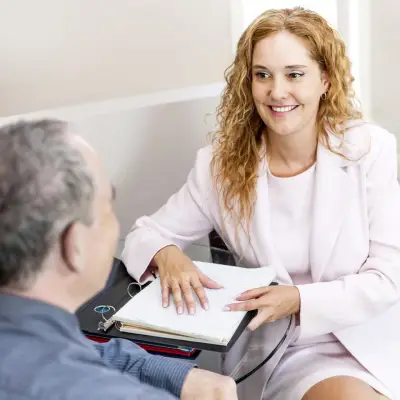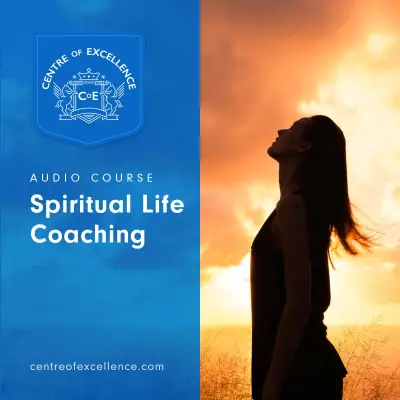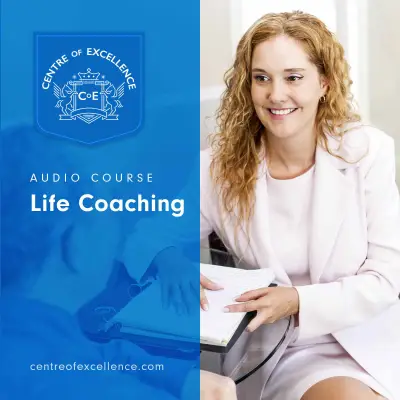Making friends as an adult can feel daunting. Unlike our school days, when opportunities to connect were plentiful, adulthood presents unique challenges and fewer natural settings for friendship to bloom. Whether you’ve moved to a new city, transitioned to a different phase of life, or are simply looking to expand your social circle, the journey to making new friends can be filled with both excitement and uncertainty.
But why do many find it difficult to forge friendships later in life? It’s completely normal to feel that making friends as an adult is harder. As we age, our social environments tend to become more static, and the free time we once enjoyed can become consumed by work and family responsibilities. Additionally, many adults find their friendship circles shrinking as life takes their peers in different directions.
However, there’s good news. Forming new bonds, even later in life, is possible. Here are some practical steps and considerations that can help you navigate this journey.
Jump to:
Understanding the Importance of Friendship in Adulthood

Relationships provide emotional support, enhance your joy, reduce stress, and contribute to a sense of belonging and purpose.
Friendships also have clear health benefits. Research consistently shows that maintaining a robust social network can improve your physical health. Adults with active social lives tend to have lower risks of cardiovascular problems and high blood pressure, and they generally enjoy a stronger immune system. Furthermore, the psychological benefits are significant, as these connections can help reduce the effects of stress, depression, and anxiety.
The positive impacts extend into mental agility and longevity as well. Studies suggest that adults with rich social lives are less likely to experience cognitive decline and may maintain better mental function as they age. Additionally, the support system that friendships provide can encourage healthier lifestyle choices, from staying active to pursuing a balanced diet, all of which contribute to longer and healthier lives.
Recommended for you!
Best SellersWhere Can You Make Friends as an Adult?

Finding the right venues to meet new people is essential. Here are some effective places and methods to start building friendships:
1. Join Clubs and Groups Aligned With Your Interests
Engaging in clubs and groups that align with your hobbies and interests provides a natural setting for meeting like-minded people. Whether you're passionate about literature, outdoor activities, or technology, there's likely a community group that caters to your interests. This makes interactions organic and ensures you share common ground with potential friends.
- Arts and Crafts Circles: If you're creatively inclined, look for local art classes or craft groups. These settings are ideal for conversing and sharing ideas, which can foster a sense of camaraderie.
2. Attend Workshops and Classes
Educational settings offer more than just skill development—they are a prime breeding ground for new social interactions. Participating in a class or workshop allows you to meet people who are also looking to learn something new, whether it's cooking, photography, or a foreign language. This shared learning experience can serve as a great icebreaker and conversation starter.
- Culinary Classes: These are fantastic for anyone who loves food and wants to learn new cooking skills while meeting others who share their culinary enthusiasm.
- Technology Workshops: If you're interested in upskilling in areas like coding, digital marketing, or graphic design, tech workshops and bootcamps can connect you with fellow learners.
- Online Courses: While online courses encourage independent study, course providers like Centre of Excellence offer private Facebook groups where people can make friends and discuss their learning journeys.
3. Utilise Online Platforms
In the digital age, the internet is a valuable tool for making connections. Online platforms and apps designed for making friends can bridge the gap between you and potential friends in your area.
- Social Media Groups: Platforms like Facebook or LinkedIn groups can help you connect with people who have similar interests. Often, these groups will organise meet-ups and social events.
- Friendship Apps: Similar to dating apps, there are apps like Bumble BFF, where you can create profiles, match with potential friends, and chat before meeting up in person.
4. Volunteering
Volunteering is a powerful way to meet people dedicated to making a difference. Whether you're helping out at a local shelter, organising community events, or participating in charity runs, volunteering connects you with a community of compassionate individuals.
- Charity Organisations: Working with charities offers the chance to meet diverse groups of people united by the desire to contribute positively to society.
- Community Gardens: Participating in or starting a community garden can attract a group of community-focused people and provide a peaceful setting for conversations to bloom.
5. Explore Local Events and Festivals
Attending local events and festivals based on your interests can provide a casual environment to make new friends. From book fairs to music festivals, these events are filled with potential friends who share your enthusiasm for specific cultures or activities.
- Cultural Festivals: Participate in or volunteer at local cultural festivals which can expose you to new communities and potential friends interested in exploring different cultural experiences.
- Networking Events: Specifically for professionals looking to expand their business contacts, networking events also allow you to meet others in a more formal environment.
Tips on How to Make New Friends
Forming new friendships as an adult requires a bit of strategy and a lot of openness. Here are some tips to help you forge and strengthen new bonds:
Be Open and Approachable
Start with a smile; it’s a universal sign of friendliness and makes you more approachable. Also, make sure to adopt open body language when in social settings—avoid crossing your arms or constantly checking your phone. This type of body language signals that you are open to interaction and eager to engage.
Listen Actively
Show your interest in other people’s stories by asking thoughtful questions, which conveys that you care and deepens your understanding of who they are. Reflect on what the person has said and respond thoughtfully, which demonstrates that you are genuinely engaged and value the conversation.
Follow Up
After meeting someone new, take the initiative to reach out with a quick message saying you enjoyed meeting them. This keeps the communication line open for future interactions. Instead of a vague "Let's meet up sometime," suggest a specific time and place to get together again. This shows your commitment to developing the friendship.
Expand Your Comfort Zone
Sometimes meeting new people means stepping out of your comfort zone. Try new activities like dance classes or local meet-ups, or attend various events regularly. Being a familiar face in different settings increases your chances of forming deeper connections.
Be Consistent and Reliable
Demonstrate reliability by following through on commitments, whether it’s attending a birthday party or helping with a project. Keeping your promises builds trust and deepens friendships. Regular check-ins, even if schedules can’t align for a face-to-face meet-up, can keep the relationship warm and show that you care.
Offer and Ask for Help
Offering help, whether in professional advice or personal support, can strengthen a bond as it creates mutual reliance and deepens trust. Asking for help can also make the other person feel needed and valued, further cementing the friendship.
Celebrate Their Successes
Show enthusiasm for your friends’ achievements. Celebrate their successes as if they were your own by attending their celebrations or sending a congratulatory note. This can show that you are supportive and genuinely happy for them.
Maintaining and Deepening New Friendships

Once you’ve begun to establish new friendships, nurturing them is key. Regular check-ins, shared experiences, and supporting each other during tough times can deepen bonds and ensure that your new friendships are lasting and fulfilling.
Dealing with Challenges
It's normal to face challenges like rejection or mismatches in friendship. It's important not to take these personally. Instead, view each interaction as a step towards finding the right companions for you.
Frequently Asked Questions About Making Friends as an Adult
Is it too late to make friends after a certain age?
It's a common misconception that there's a specific age limit for making new friends. People of all ages are looking to connect with others. Whether you're in your 30s, 40s, 50s, or beyond, the opportunity to form new friendships is always available.
How do introverts make friends as adults?
Introverts can make friends by choosing environments that feel comfortable and less overwhelming. Smaller gatherings or one-on-one meetups can be ideal. Also, pursuing hobbies and interests in structured settings, like classes or book clubs, can help introverts meet new people at a manageable pace.
How can I make friends if I have social anxiety?
Start by taking small steps. Engaging in online communities may be less daunting and can help build confidence. Therapy or social skills training can also be beneficial. Additionally, attending events specifically designed for people with social anxiety can be a supportive way to make connections.
What should I do if I have no friends as an adult?
First, know that it's okay and more common than you might think. Begin by exploring new activities where you can meet people. Also, consider revisiting old contacts. Sometimes, reaching out to people you've lost touch with can rekindle friendships.
How often should adults see their friends?
There's no one-size-fits-all answer to this. It depends on individual lifestyles and preferences. Some people might meet their friends weekly, while others might catch up less frequently. The key is the quality of time spent together, not the quantity.
What percentage of adults have no friends?
While specific percentages can vary, studies suggest that the number of adults reporting no close friendships is rising. However, this highlights the importance of community-building activities and social platforms that can help bridge this gap.
Why do adults find it harder to make friends?
As adults, people often have more responsibilities, such as work or family, which can limit their social time. Also, adult friendships often require more effort to maintain as people's lives and schedules can be quite different.
How can I find high-quality friends?
Focus on meeting people who share your values and interests. High-quality friendships often arise from shared experiences and mutual respect, which can be cultivated in settings where you pursue your passions or volunteer.
Recommended for you!
Best SellersEmbrace the Journey of Making New Friends
If you're eager to enhance your life skills, which can also improve your social interactions, Centre of Excellence provides the perfect opportunity with our How to Live Your Best Life Diploma Course. This course is designed to equip you with the tools necessary to excel in personal development and social endeavours.
Why Centre of Excellence?
- Accessibility: We are committed to making transformative education accessible to everyone. That's why we offer the How to Live Your Best Life Diploma Course at an affordable rate, ensuring that no one is excluded from the opportunity to grow.
- Flexibility: Our courses are designed to seamlessly integrate into your life. You can learn at your own pace and on your own schedule, making it easy to incorporate your personal development goals into your daily routine.
- Dedicated Support: Enrolment grants you personalised tutor support and access to a vibrant community of like-minded learners. You’re joining a supportive network that encourages your growth every step of the way.
Special Invitation
We are delighted to offer you the How to Live Your Best Life Diploma Course at a special discounted rate of just £29, saving you over £100!













